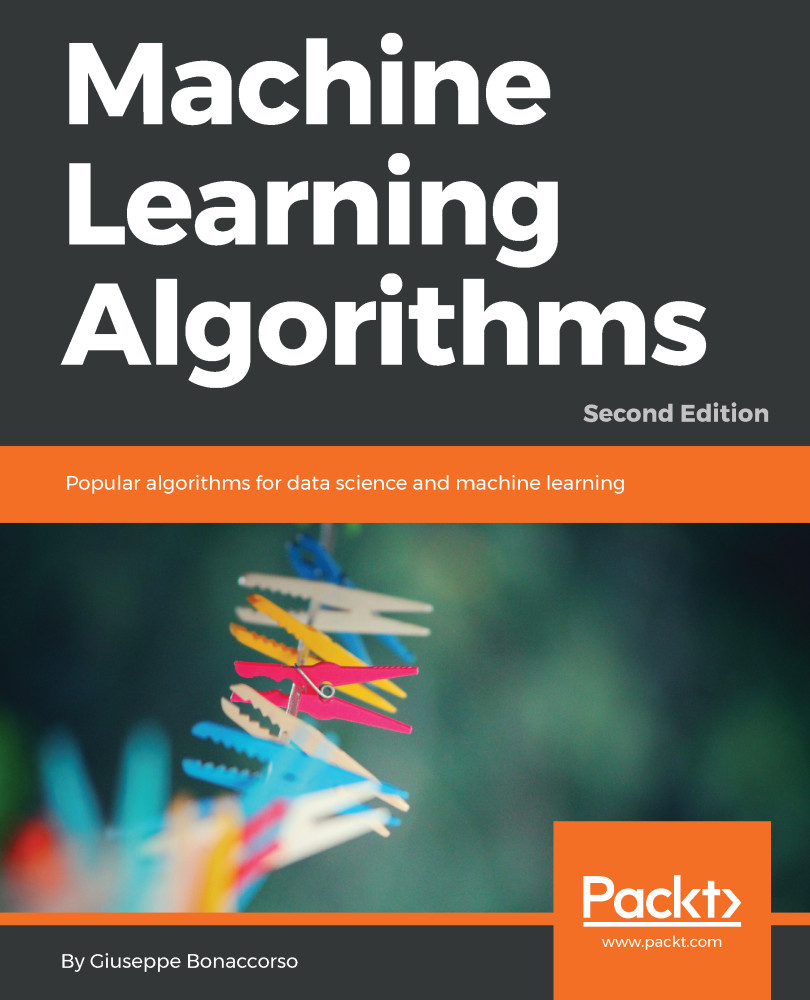In this chapter, we're going to discuss some important elements and approaches that span through all machine learning topics and also create a philosophical foundation for many common techniques. First of all, it's useful to understand the mathematical foundation of data formats and prediction functions. In most algorithms, these concepts are treated in different ways, but the goal is always the same. More recent techniques, such as deep learning, extensively use energy/loss functions, just like the one described in this chapter, and even if there are slight differences, a good machine learning result is normally associated with the choice of the best loss function and the use of the right algorithm to minimize it.
In particular, we will be discussing the following topics:
- The generic structure of a machine learning problem and...


